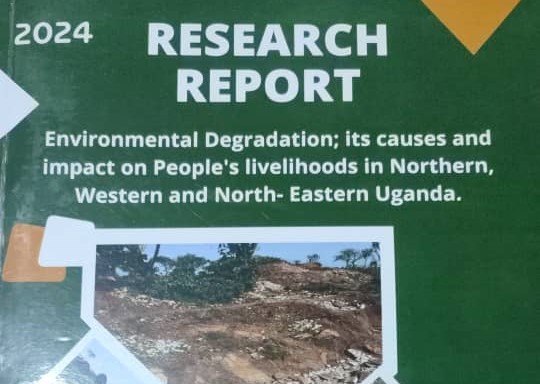Uganda Episcopal Conference Justice and Peace Commission has produced a Research Report revealing catastrophic effects to humanity in Uganda as a result of Environmental Degradation.
The report comprised of 600 household as the sample size from the Catholic Dioceses of Hoima covering districts of Hoima and Kikuube, Moroto – covering Moroto, Napak, Nakapiripirit districts and Gulu Archdiocese covering Gulu and Amuru districts.
The report revealed, 94% of the respondents identified poverty as the major driver of environmental degradation, as it forces communities to prioritise immediate survival needs over long term environmental conservation.
Poverty leads to unsustainable practices such as deforestation, overfishing and soil degradation that is seen in encroachment on wet lands for farm land like rice farming, deforestation for firewood, charcoal, building materials and settlement lead to environmental pressures; extreme weather events, shift in precipitation patterns and rising sea levels which threaten ecosystems, livelihoods and human wellbeing, the report revealed.
The selected dioceses also experience high levels of natural resources exploration that is mable stones, forest product and oil exploration that must checked by the government.
While releasing the report to the focal persons from the selected diocese that included members from the Caritas Commission Justice and Peace offices, members of the civil society advocating for environmental protection and journalists at Pope Paul Memorial Hotel Ndeeba on 6th November 2024 the Executive Secretary for Justice and Peace Commission Dr. Emmanuel Aliba underscored the commitment of the Catholic Bishops in Uganda and AMECEA to implement the Pope Francis’ Laudato Si’ letter released in May 2015.
Dr. Aliba said a systematic plan to support families to fight poverty, access to affordable electricity and solar energy must be emphasised by government and support agencies if communities are to protect the environment.
By Jjunju Francis
11th Nov 2024
End

